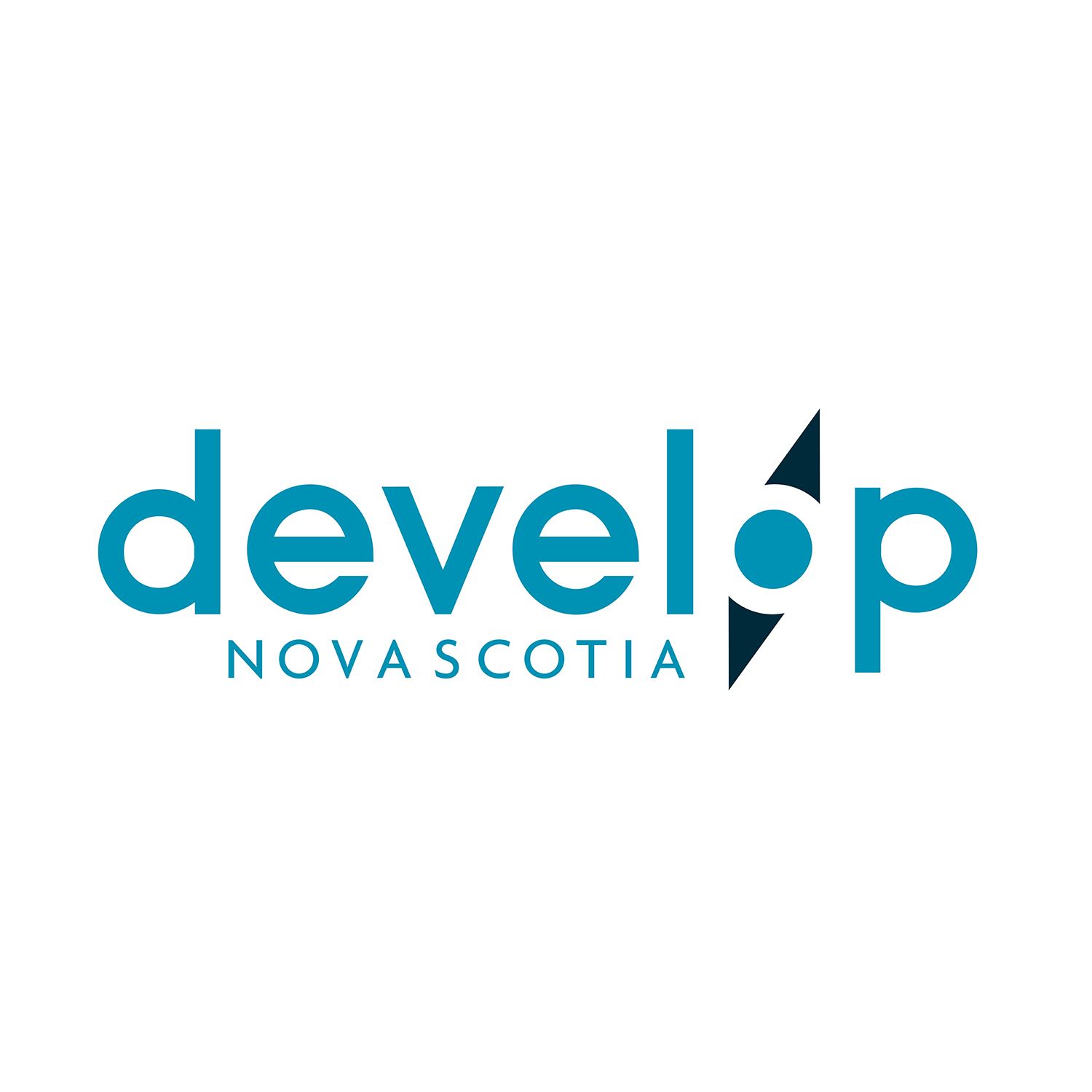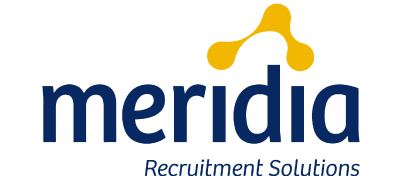
Talent Strategies in Support of Expanded Mandate
Develop Nova Scotia celebrates new strategic direction and reflects on their collaborative recruitment process
The brand new entity, Develop Nova Scotia, needed a much bigger team to fulfil its new mandate. Anna Marenick was the first of its new wave of employees. As Director of People and Strategy, she knew recruitment was going to require a team effort to grow the organization to meet the challenge of the new mandate.
Meridia Recruitment Solutions had the pleasure of working with Develop Nova Scotia to help them recruit the talented people they needed. We asked Anna to share how the organization’s wide-scale recruitment provided lessons on the importance of employer brand and organizational fit, the role of HR in coaching managers in the recruitment process, and the value of collaboration.

When the Waterfront Development Corp. rebranded as Develop Nova Scotia in July of 2018, its mandate shifted to focus on developing strategic economic infrastructure to drive inclusive economic growth across the entire province. Now, their work focuses around the concept of placemaking – making Nova Scotia irresistible to visitors, to businesses, and as a great place to live.
Q: When the recruitment process began, you were a brand new employee yourself. How were you able to effectively communicate to candidates the values and culture of the organization you were helping to build?
A: The fact that I was a new employee was actually a strength. It was easy for me to share what had made me excited about the organization and why I made the decision to join
I’d been in their shoes not long before, so I was able to say, “This is what I understood about the culture, the values, and the brand from the outside, and here’s what I’m continuing to see now on the inside.” It helped prospective employees understand that lots of talent was coming in on the ground level to build something new – and that the existing team was incredibly welcoming and excited when we arrived.
Q: The Waterfront Development Corp. had been well-known, but Develop Nova Scotia was brand-new. What role did your brand as an employer play in attracting talent?
A: People were really excited about the new brand. They knew we had been part of redeveloping the Halifax waterfront into a major tourist attraction and business platform, so in their interviews they talked about the evolution of the Halifax waterfront — what it’s meant to them, and how they’ve been proud to have it as a real showpiece for Nova Scotia.
Even though Develop Nova Scotia was brand new, they wanted to be a part of what we’re doing across the province now. In every interview, candidates spoke of their connection to rural communities and their genuine love of Nova Scotia. They felt our work was going to be a game-changer for our province— and that they wanted to be a part of it.
Q: In job interviews, candidates often ask “What will the organization look like five years from now?” With a brand-new organization, how did you answer those kinds of questions?
A: I think candidates appreciated that we could honestly say “We can’t give you a set path for how that will look, but we’ll figure it out together.”
I give our CEO, Jennifer Angel, a lot of credit for building an organization that really puts people at its core — both the people we work with and the people at the heart of the work we’re doing. We were very clear with candidates that we knew we had something special within our organizational culture, and we were only bringing people in to add to that and make it even stronger. We consider this a non-negotiable in our approach and that really resonated with people.
Q: Tell us about the collaborative approach your team took for the interview process, and why you chose to involve so many non-HR employees?
A: I believe it’s important to be as broad as you can with a hiring process — and in this case, it was a necessity because we were doing so much hiring. We needed other members of our team to help share the load, while still getting their work done.
The first round of interviews were, in some cases, conducted by someone in the organization who would — if the candidate was successful — become their peer. Getting the perspective of someone who would be working with the person was important.
We were also showing the candidate that everybody’s going to connect with everybody here — regardless of your day to day function. Collaboration is at the core of everything we do.
Q: Some of the employees conducting these first-round interviews had never been part of a formal interview process. What were the benefits of this unusual scenario?
A: I was able to leverage the strengths of these employees because they had organizational history — and I didn’t — so they really understood the roles we were trying to fill. It gave the candidates a really good flavour of the kind of organization we have.
It was also a great developmental opportunity for employees to be a part of the process and see how we select candidates and determine the right fit for a job. If they said, “I like that candidate,” I tried to elevate their thinking with questions like, “Why do you like them? What does the role need? Do you think this candidate can do A, B, and C?” to ensure our decisions were guided by the role requirements.
Our team embraced the opportunity to be a part of something new and important that they hadn’t been a part of before.
Q: When the candidates were selected, how did you and your team support them while onboarding them into their new roles?
A: As the first of the new employees, I thought about my own experiences and the questions I’d had — even simple things like where to park, if you need keys to the building or codes to the alarm — and put together information that I needed before my first day.
It was also important to manage expectations for the staff who were already here. We had to make sure they didn’t overwhelm and bombard the new employees on their first day, and that we were all playing a role in helping them feel comfortable. In some cases, we had to say, “It’s great that you’re excited and I know you’ve been waiting for this resource for a long time, but this person doesn’t even know where the bathrooms are yet!”
We were also deliberate about giving our new employees an opportunity to meet everyone since they wouldn’t necessarily get to interact face-to-face on a daily basis. We organized social events and monthly staff meetings so people could get to know each other, and the people who had been with the organization for a long time were exceptionally welcoming and generous. Everyone was so kind — checking in with people and making sure they were getting what they needed. It’s amazing how seamless it’s been.
Q: What can you tell us about the organization’s holistic approach to “learning the business”?
I am amazed at the talent that we were able to attract. As we grow the organization, we’re exploring their skills and strengths and different backgrounds. We have deliberately created the kind of culture where we encourage everyone to ask questions and give feedback about anything and everything
For example, we don’t want our Internet for Nova Scotia project team just sequestered in the corner focusing on internet work — we want them integrated in the business and understanding what’s happening on the planning and infrastructure side. If someone has a great idea for marketing but they don’t work in the marketing department, they still have every right to share it.
Q: What do you think is important to consider when choosing a recruitment partner?
A: Since a recruiting partner is often the first touchpoint with potential employees, you need to trust that they’ll position those opportunities well — and generate excitement about your organization’s mandate — since they’re doing it on your behalf. You need to choose a team of recruitment professionals who will take the time to understand what you’re trying to do and really understand the skills of the people needed to fill these roles.
In our situation, we were recruiting for a VP and a maintenance employee at the same time — and they weren’t approached differently. There’s value in taking a consistent approach to the recruitment process. I really value the time the Meridia team spent with the hiring managers at the onset of each search. Our team felt very respected and understood that who to hire was always the decision of the hiring manager, and Meridia was there to provide advice and expertise throughout the process.
Recruitment isn’t transactional — these are people’s lives we’re talking about. It’s important to work with a recruiter who understands the importance of the relationship you’re building. There are always going to be candidates that we never get to meet, but they do meet with the recruiter who is representing our brand. We need to feel they care as much as we do about making the right impression. Choose a recruiter who understands what your organization is looking for, understands your positioning, treats every candidate with care and respect, and takes the time to learn everything they can about them.
Ready to grow?
To learn how Meridia works with organizations to grow and strengthen their teams contact us.

Find the right talent for your organization’s unique needs with our team of recruitment professionals.





